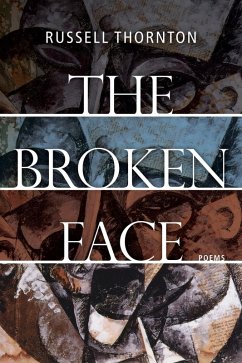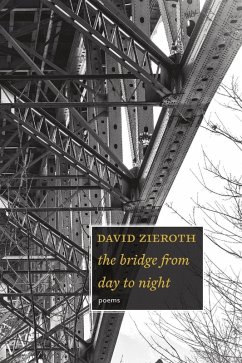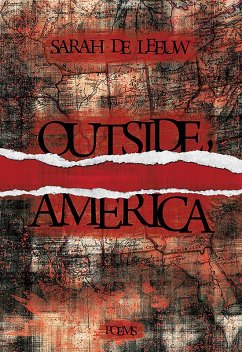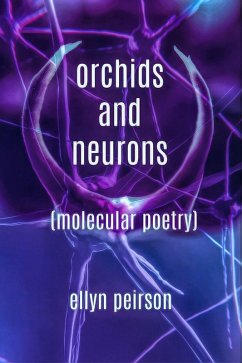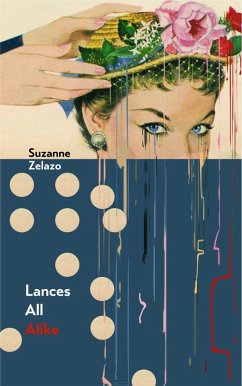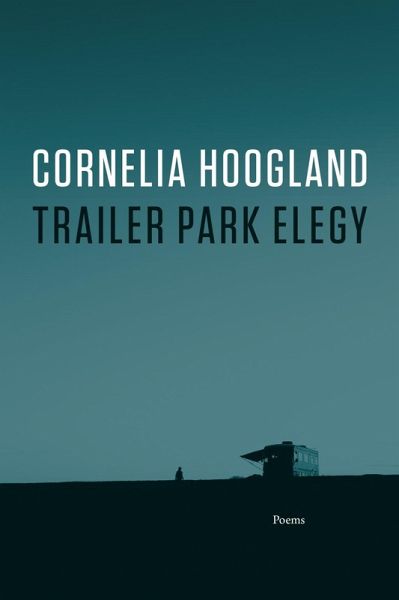
Trailer Park Elegy (eBook, ePUB)

PAYBACK Punkte
4 °P sammeln!
In response to her brother's sudden death, Cornelia Hoogland explores the shift in gravity his dramatic absence creates. Set on the Salish Sea on Vancouver Island's east coast, Trailer Park Elegy reaches back two thousand years to the First Peoples, as well as to the brother whose delight was summers spent at Deep Bay.Hoogland looks to her child-experiences of death, as well as to literature, chaos theory, dark matter, geological time and the effect of noise pollution on whales. She turns grief round and round, enlarges it, pushes beyond received ideas of closure and grief's stages. Death is n...
In response to her brother's sudden death, Cornelia Hoogland explores the shift in gravity his dramatic absence creates. Set on the Salish Sea on Vancouver Island's east coast, Trailer Park Elegy reaches back two thousand years to the First Peoples, as well as to the brother whose delight was summers spent at Deep Bay.
Hoogland looks to her child-experiences of death, as well as to literature, chaos theory, dark matter, geological time and the effect of noise pollution on whales. She turns grief round and round, enlarges it, pushes beyond received ideas of closure and grief's stages. Death is not only part of life; the dead assign their unfinished work to the living. Hoogland's narrator puts in the time. Listens. Attends. But the responsibility for connection belongs as much to the dead as to the living.
The book's form, a long poem, provides thematic coherence for the multiple contingencies that disturb the narrator's present. Like keeping balls up in the air, Hoogland expertly catches and tosses, thus sustaining her imaginative energies throughout the book. Here she is, contemplating the cliché that life flashes before the eyes of the dying, or questioning the memories stored in her body like trauma or fat, when suddenly there she is, fifty years earlier, constructing the highway at the accident site. The reader participates in Hoogland's excavations as she leans in, digs up an absurdity, hits a fault line. Similarly, she inquires deeply into her brother's life, listening for what he reveals. Through spare, never-sentimental language, Hoogland's lyric resources are adequate to human loss and suffering. "I see reflected in my daughters' faces / the story my brother animates. / He opens his hands, / shapes a funnel his life / pours through."
"Part emotional excavation and part memorial, Trailer Park Elegy is a deeply moving meditation on how to be present when "[t]he worst has already happened". Retracing her brother's steps in the wake of his untimely passing, Cornelia Hoogland attends to grief until "the field of his death / becomes my field", and little by little, her brother's life overlaps with her own as a kind of dark matter. An intensely poignant, heart-rending read."
-Jim Johnstone, author of The Chemical Life
Hoogland looks to her child-experiences of death, as well as to literature, chaos theory, dark matter, geological time and the effect of noise pollution on whales. She turns grief round and round, enlarges it, pushes beyond received ideas of closure and grief's stages. Death is not only part of life; the dead assign their unfinished work to the living. Hoogland's narrator puts in the time. Listens. Attends. But the responsibility for connection belongs as much to the dead as to the living.
The book's form, a long poem, provides thematic coherence for the multiple contingencies that disturb the narrator's present. Like keeping balls up in the air, Hoogland expertly catches and tosses, thus sustaining her imaginative energies throughout the book. Here she is, contemplating the cliché that life flashes before the eyes of the dying, or questioning the memories stored in her body like trauma or fat, when suddenly there she is, fifty years earlier, constructing the highway at the accident site. The reader participates in Hoogland's excavations as she leans in, digs up an absurdity, hits a fault line. Similarly, she inquires deeply into her brother's life, listening for what he reveals. Through spare, never-sentimental language, Hoogland's lyric resources are adequate to human loss and suffering. "I see reflected in my daughters' faces / the story my brother animates. / He opens his hands, / shapes a funnel his life / pours through."
"Part emotional excavation and part memorial, Trailer Park Elegy is a deeply moving meditation on how to be present when "[t]he worst has already happened". Retracing her brother's steps in the wake of his untimely passing, Cornelia Hoogland attends to grief until "the field of his death / becomes my field", and little by little, her brother's life overlaps with her own as a kind of dark matter. An intensely poignant, heart-rending read."
-Jim Johnstone, author of The Chemical Life
Dieser Download kann aus rechtlichen Gründen nur mit Rechnungsadresse in A, D ausgeliefert werden.





